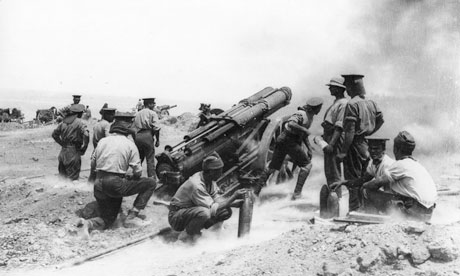
A misfortune has befallen Jo Baker's fourth novel in being published the same year as Alan Hollinghurst's The Stranger's Child. The two novels have very similar inter-generational structures, spanning 20th-century Britain, and Baker, here as in her earlier novels, shares Hollinghurst's fascination with peeping in on the ghosts of the past when they were anything but ghostly. The similarities end there, with the novelists interested in radically different themes (and social classes), but it is impossible not to compare how the storytellers handle history's little recurrences and ironies, or the quality of their prose and ideas, and these comparisons favour Hollinghurst every time. That said, The Picture Book will be, for most readers, a more emotionally involving story.
The family saga begins in 1914, with Amelia and William Hastings, an ordinary working-class couple torn apart by the husband's conscription. A series of familiar scenes follow, which nonetheless ring true: the childlike wonderment of the first cinema audiences; an English Tommy guiltily tasting foreign pleasures; war's waste of youth and the doubt its suffering casts on a person's religious faith. A Gallipoli battle scene is as viscerally depicted as in any big-budget movie.
It is not until the next section, about Amelia and her plucky son Billy, that the narrative really hits its stride, with a satisfying struggle against a reptilian villain. Baker writes best whenever she narrates events from a child's perspective. This drama then develops unexpectedly in the following section, set around the D-Day landings and concerning the now adult Billy and his Jewish wife, Ruby. Amelia, seen by Ruby as a slightly oppressive mother-in-law, is still surprisingly young, given her early marriage, and this brings home the proximity of the two world wars and the dreadful sense of repetition Amelia's generation must have felt. Echoed details – a boy soldier nervously chewing the skin off the sides of his fingers, for example – underline this, while a sense of history and physical ageing moving much faster than the characters' inner lives strikes a psychologically realistic note.
The next, 1955, section starts strongly: a day out at the seaside for Ruby's children, narrated from the viewpoint of her crippled son Will, is constricted by family tensions implicit from previous chapters. Later this becomes explicit, with a confrontation scene described as "full of unseen cables, linking, pulling, tense". Unfortunately, Baker's moral dedication to representing everyday experience tends to tip her characters away from originality: Will grows into a struggling provincial outsider at Oxford in the 1960s, and then a lecherous don who knows, even as he pours sherry to seduce a student, that he is a stereotype. Another character wonders if throwing her wedding ring into the sea to symbolise a new start is "too much of a cliche" but she does it anyway. The self-consciousness doesn't make it better.
Baker tackles Boy's Own subjects – wars, cycle racing, great escapes – with impressive confidence. Yet the book's most moving moment is not amid the tragedy of war but a quiet little scene between a teenage boy and his half-sister in Oxford's Covered Market in 1999, where low expectations of another person are momentarily confounded and the possibility of escape from the family's past is glimpsed. It is also a conversation in which one of the book's central themes acquires complexity, its author's sympathy for shattered soldiers balanced by a main character's straightforward dislike of the army as career choice.
The story traces a tidy full circle, fate or coincidence returning William Hastings's great-granddaughter to the spot where her ancestor once stood. At the same time, Baker has the experience to know she needs an ending beyond the purely symbolic and structural, and so provides one that is emotionally gratifying. She gets it almost perfectly right, with just one short chapter too many, in which the line: "There will be illness, and there will be death, and through it all there will be love" is allowed to appear. Again, self-consciousness does not make this better.

